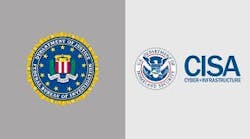Gov. Janet Napolitano -- President-elect Barack Obama's pick to run the Homeland Security Department -- has strongly advocated using advanced security technology as a law enforcement tool, drawing praise from police and raising concern among civil liberties groups that warn about privacy invasion.
As Arizona's Democratic governor since 2003, Napolitano has:
*Pushed state police to use cameras that scan license plates of moving cars to find vehicles that are stolen or linked to a criminal suspect.
*Promoted "face-identification" technology that could help surveillance cameras find wanted people by comparing someone's face with a photo database of suspects.
*Signed a 2007 bill making Arizona one of 12 states that collect and store DNA samples of people accused but not convicted of certain crimes, including murder, burglary, sexual assault and prostitution.
*Proposed an optional state ID only for legal citizens that would feature a radio-frequency chip to allow authorities to read the card. State lawmakers blocked the effort this year.
"She sees technology as the panacea of all our law enforcement problems and immigration issues," said Alessandra Soler Meetze, head of Arizona's American Civil Liberties Union chapter. "It's like she's embracing these technologies without taking the time to appreciate the privacy implications."
Arizona Department of Public Safety spokesman Harold Sanders said the state's 25 license plate scanners are "tremendously helpful" because they check for stolen cars by instantly comparing a license plate with a national crime database. The system has read 1.6 million plates and led to 122 arrests since mid-2006, Sanders said.
If confirmed as Homeland Security secretary, Napolitano will have opportunities to deploy technology, including sensors along U.S. borders and airport body scanners that look for weapons on passengers by taking images underneath clothing.
"She's going to have a lot more money to play with" for technology, Meetze said.
In a speech in 2007, Napolitano, a former state attorney general, called for "technology-driven border control." She advocated more radar, motion sensors and aerial surveillance to spot illegal entrants.
Napolitano spokeswoman Jeanine L'Ecuyer said the governor takes a practical approach. "It makes sense to use technology as a tool for law enforcement. I don't think she sees it as the be-all and end-all," L'Ecuyer said.
Napolitano views DNA samples for suspects as "the modern equivalent of fingerprints" and hoped the new ID card would expedite border crossings, L'Ecuyer said. Face-recognition technology could "detect violent wanted fugitives" at state entry points, Napolitano said in a March 2007 letter to President Bush. The technology never was launched, L'Ecuyer said.
Bryan Turner, head of the conservative John Birch Society in Arizona, said he feared the ID cards would become mandatory and people who didn't have one would be presumed to be illegal residents.
State Rep. Kyrsten Sinema, a Phoenix Democrat, said Napolitano "looks for a balance between protecting civil liberties and ensuring safety."


